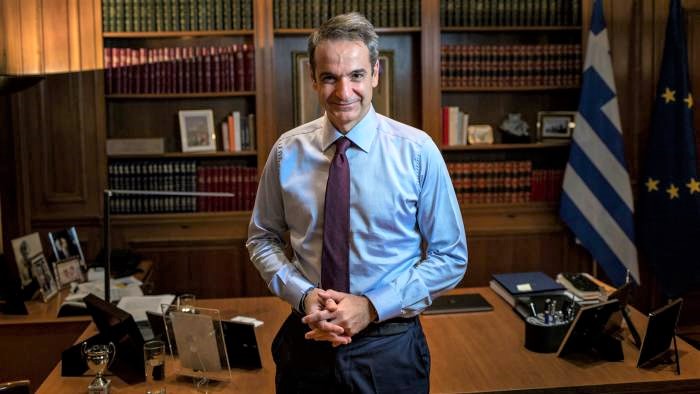In an interview with the Financial Times, Prime Minister Kyriakos Mitsotakis said he would not accept strict EU conditions on the use of coronavirus emergency aid, in a sign of the difficult negotiations ahead for the bloc’s leaders on its proposed €750 billion recovery fund.
“Greece has matured a lot since the days of its debt crisis… and we want to do our own reforms. There will be no return to the sort of EU oversight imposed during the debt crisis,” Mitsotakis said.
The former “troika” of Greece’s creditors, the European Union, the European Central Bank and the International Monetary Fund, had “forced (Greece) to do reforms” even though “there was never really any domestic buy-in.”
A six-monthly review of economic performance carried out by the European Commission was sufficient, Mitsotakis said.

“I don’t think any additional strict conditionality is necessary,” he said, adding that every southern EU member state regarded it as “politically unacceptable.”
Denmark, Finland, Sweden and the Netherlands are opposed to the Commission’s plans for the recovery fund and are pushing for so-called “conditionality” to be applied to EU money to ensure it is spent to improve competitiveness. German chancellor Angela Merkel, who supports the recovery fund, has said the money must be used to “future proof” the countries’ economies.
Greece will receive a total of €32 billion out of the €750 billion fund, if the Commission proposal is enacted upon.
RELATED: Greece anticipates grants of at least 8-10 billion euros from French-German recovery plan.
